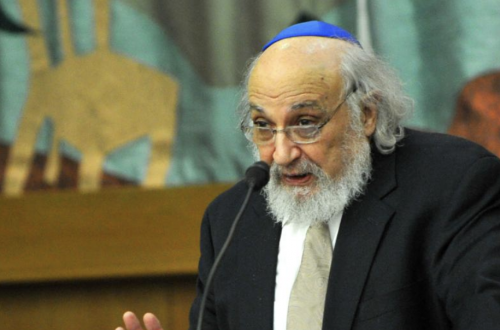Yesterday the closing arguments were delivered at the industrial tribunal which will (probably in the new year) offer its judgment on the legal action brought by Ronnie Fraser against the UCU.
I don’t suppose I need to remind readers of the lowlights we have seen over recent years. On top of the string of boycott motions, there was the UCU’s invitation to Bongani Masuku, and its failure to address the SAHRC’s hate speech ruling when concerns were raised about hosting such a speaker. Wendy Kahn, national director of the South African Jewish Board of Deputies, expressed understandable indignation that the UCU had failed to engage with his hateful and threatening language when she was cross-examined:
“Whether Israel is or is not an apartheid state is academic discourse; it’s often discussed in the South African media,” she said. “When comments are made, ‘I came to the conclusion that Jews are arrogant’ or ‘Jews control the US’ — these comments are unacceptable, that’s when you go to the Human Rights Commission. When Jews are talked about as having blood dripping from their hands, that they should leave the country — that’s when you go to the Human Rights Commission.”
Political debate is “valid, to be admired,” Kahn later added. However, she said, “I have a problem with using the Israeli situation as an excuse for hate speech and making comments on fellow South Africans. Some of the comments drew on classic and modern anti-Semitic discourse.”
It seems that some people have become so fixed on this idea that antizionism cannot be anti-Semitic that they are now incapable of acknowledging even a blatant example of the intersection.
Another witness was Michael Yudkin, who had also been horrified by the implications of the Masuku invitation.
A second witness, retired University of Oxford biochemistry professor Michael Yudkin, had helped draft a motion in his local UCU branch disassociating members from “Masuku’s repugnant views,” which was passed 14:1. In May 2010, he proposed the motion at the UCU Annual Congress, but lost by “an overwhelming majority”. Yudkin subsequently resigned his UCU membership.
The rejection of the EUMC working definition of antisemitism was another appalling episode, and the whole topic of the UCU’s failure to take the issue seriously emerged strongly in the cross-examination of John Mann:
On Monday, John Mann MP told the tribunal that the union had refused to accept the report of the 2006 All-Party Parliamentary Inquiry into Antisemitism. Cross-examined by the UCU’s lawyer Antony White QC, Mr Mann said he had been “gobsmacked” when union representatives, including Ms Hunt, had refused to discuss antisemitism during a meeting in Parliament in 2006.
My own cross-examination was fairly brief, but nerve-wracking nonetheless. I was questioned about the potential conflict between free speech and the EUMC working definition of antisemitism, and about whether or not the UCU’s recent leaflet on antisemitism was adequate. (I thought not.)
Key witness for the UCU was Sally Hunt. The Jewish Chronicle gives this account of her cross-examination:
Asked how she would respond if someone said “If you want to know the truth about Jews, read Mein Kampf,” Ms Hunt responded: “It could mean you could learn about the Holocaust.” Was it antisemitism, she was asked? When she said it depended on the context, Mr Julius retorted: “Do you accept from me that your resistance to accepting plainly antisemitic material is tactical in this case?” She denied that charge.
Questioning focused on UCU’s handling of a complaint from Mr Fraser about the actions of a Glasgow University UCU member, Keith Hammond.
Mr Fraser had complained that Mr Hammond had made antisemitic remarks in a post on the UCU activists’ online forum in January 2010.
The UCU investigation ruled that the post – which included the suggestion that then-Prime Minister Gordon Brown was “Israel’s man in Number Ten”, and another which implied that “Zionists” were responsible for university department closures – were not antisemitic.
Mr Julius asked: “Do you think Mr Fraser would be entitled to infer from this decision that the union was not taking antisemitism seriously?” Ms Hunt replied: “I think he would.”
But she argued that Mr Fraser could not be considered “an ordinary Jewish member of the union” because he had spent so much time working on the issues of anti-Zionism, antisemitism and UCU’s proposed boycott of Israel.
A bit of a double bind it would seem – if you speak out against the UCU in the context of antisemitism, you are too political – in order to be an ‘ordinary member of the union’ do you just have to accept everything?
It’s about seven years now since I first began to take an interest in this issue, and I think my resignation prompted me to make almost my first ever comment on Harry’s Place, in response a post about the excellent Eve Garrard who resigned on the same day as me.
Following the progress of the tribunal has reinforced my belief in the justice of Ronnie Fraser’s case, and my hope for the right result. But I also think back to some observations made by David Hirsh back in 2008:
Today, people who say anti-Semitic things and who support anti-Semitic boycotts are likely to have stumbled into anti-Semitic ways of thinking. They are unlikely to be wicked people. Our intention should not be to reverse the logic of demonization in order to demonise the demonisers.
Demonising ordinary UCU members certainly isn’t right either. All I want is to be part of a union which demonstrates, rather than just asserts, that it takes antisemitism seriously.

